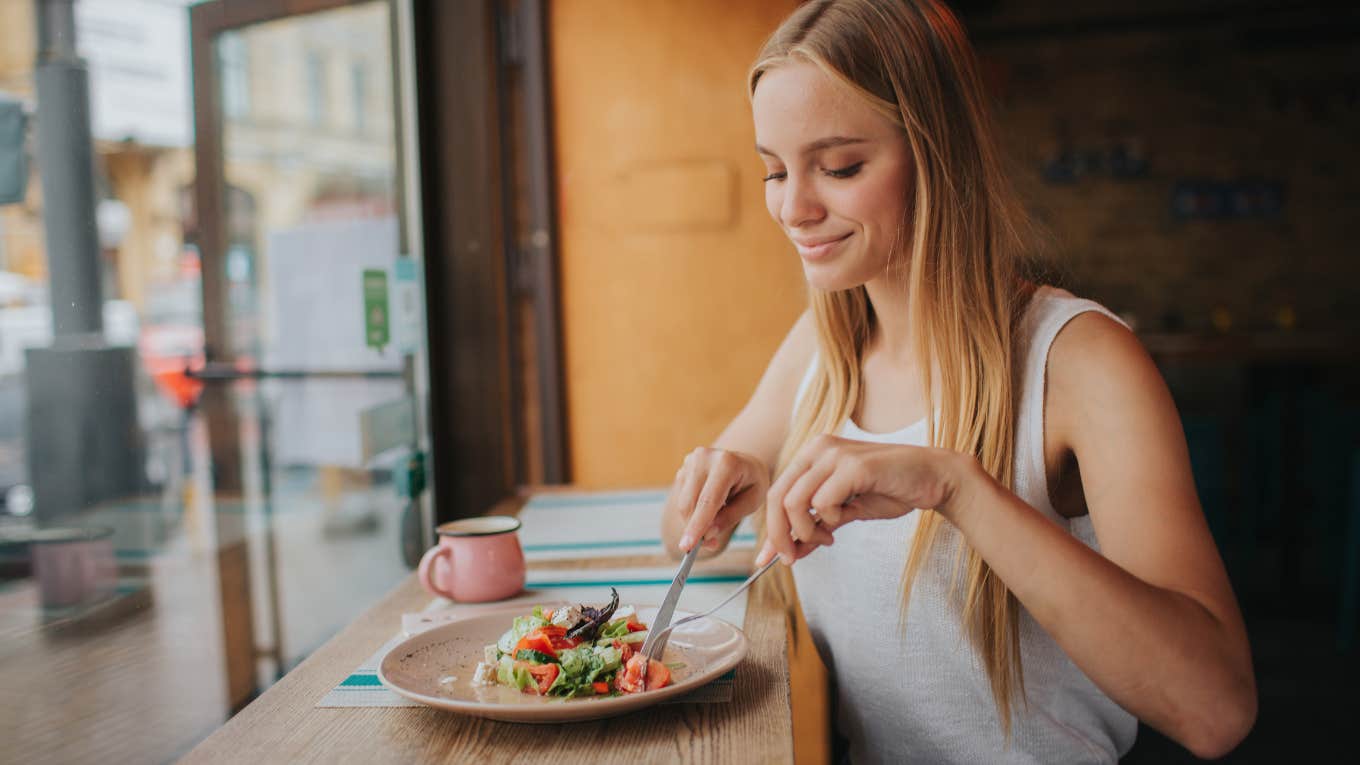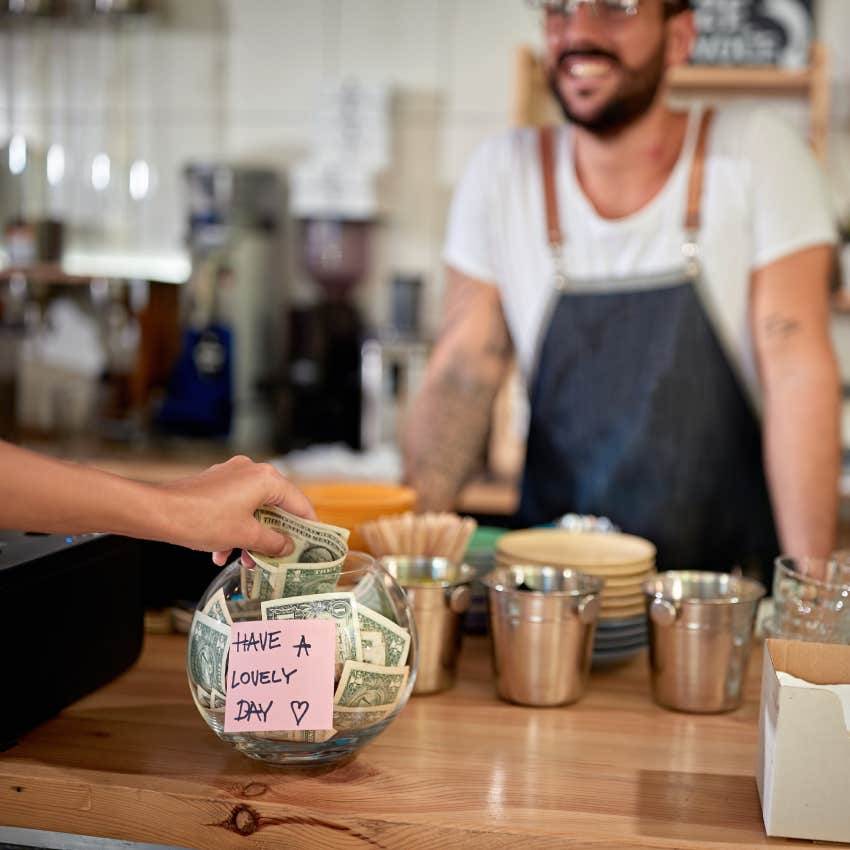Frustrated Woman Says She Was Asked To Tip 30% For A $20 Salad Despite Ordering And Seating Herself At Restaurant
"I've been doing everything myself, and then it's like 30% on a $20 salad that's already ridiculously overpriced for lettuce."
 Estrada Anton | Shutterstock
Estrada Anton | Shutterstock A woman admitted that she's had enough of tipping culture after a recent experience at a restaurant where she had to do most of the things that a server does but was still asked to leave a tip.
In a TikTok video, Taryn Lamb expressed her frustration with constantly being asked to tip, especially at establishments that don't necessarily need it.
She was asked to tip 30% for a $20 salad despite ordering and seating herself.
Lamb explained that whenever she dines out at restaurants, or in most situations where she's asked to leave a tip, it's always 20% — which is the standard percentage that food service workers expect. If she has an above-and-beyond experience, Lamb will usually try to tip above 20% and is someone who understands why tipping is important for restaurant servers.
"I went out to eat at this restaurant in Austin, and you walk in ... nobody greets you," she recalled. "We seat ourselves, and when you sit down, there's a QR code that says scan the code, order online. Not my favorite way to dine."
Lamb didn't complain, though, and followed the instructions. She sat at the table waiting for the menu to load online for 15 minutes and ended up picking what she wanted and placing the order. Lamb still hadn't interacted with any server or employee at the restaurant, and right before paying for her $20 salad, she was asked to leave a tip.
"There's three options: 20%, 25%, and 30%. And I'm like, 'I haven't interacted with a single person in here.' I haven't had a negative experience ... I've been doing everything myself, and then it's like 30% on a $20 salad that's already ridiculously overpriced for lettuce."
Lamb was frustrated and taken aback that despite not having a single server come over to take her order, check in with her on drinks, or any of the other routine services that are typically expected, she was still being asked to tip.
In her mind, a tip is only given to restaurant servers who provide a service, but if she's taking care of everything herself, it seems unnecessary.
 fizkes | Shutterstock
fizkes | Shutterstock
"Keep in mind, there's a little station that's like, serve yourself water. You do not interact with a human being except after you placed your order and left your 20% or 30% tip. Someone walks out with a tray 10 feet from the kitchen, sets it down on your table, and walks away."
After eating, no busser came over to clear the table, and Lamb was expected to throw away her own trash and put all of the utensils in their designated place so they could be washed.
The entire purpose of gratuity is when you've experienced a service worth tipping, usually when you go to a traditional sit-down restaurant and a server comes over to take your order and cater to any needs you have.
Many people feel that tipping has gotten way out of hand and don't want to leave any money for servers.
As it is, many people, especially in America, where tipping is expected and normal compared to Europe, where tipping is considered optional, feel that it's not only gotten out of hand but that people shouldn't be expected to tip when so many expenses have risen considerably in price.
In a Pew Research Center analysis, more Americans oppose (40%) than favor (24%) businesses suggesting tip amounts to their customers — for example, on the bill or on a checkout screen. Another 32% neither favor nor oppose the practice. Similarly, around three-quarters of adults (77%) say the quality of the service they receive is a major factor in deciding whether and how much to tip.
According to a 2023 survey by USA Today, 63% of respondents think that tipping culture has gone too far, and 48% say they are tired of being asked to tip. The survey also found that 65% of guilt tips are given to avoid awkwardness with staff, and 63% are given to avoid confrontation.
 Lucky Business | Shutterstock
Lucky Business | Shutterstock
People have used the argument that businesses should increase the wages of their employees so they don't have to rely on tips to supplement their income because, in the restaurant industry, receiving high tips is how most servers make their money. While this argument is incredibly valid, and any food industry worker you talk to would heavily agree, that's not how it is.
Restaurants, cafes, and other food-centered businesses often pay their workers very little. As consumers who dine at these establishments and expect a certain level of service, we should agree that tipping shouldn't be the main source of income for these workers.
However, until this changes, leaving an appropriate tip at the end of the meal is expected. In circumstances like the one Lamb found herself in, leaving a tip isn't as black and white, and that's when the tipping system can be seen as flawed.
But as long as we're appropriately compensating restaurant servers for their hard work and dedication, especially when they don't receive the best attitude from customers, that's what truly matters.
Nia Tipton is a Chicago-based entertainment, news, and lifestyle writer whose work delves into modern-day issues and experiences.

